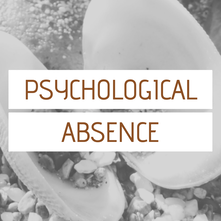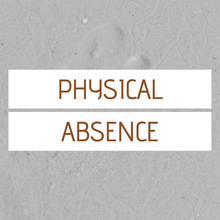AMBIGUOUS LOSS
Ambiguous loss occurs when someone or something is physically absent but psychologically present such as with estrangement, adoption, missing people/pet, divorce or the climate crisis. Or psychologically absent but physically present; for example with dementia, brain injury, addiction or chronic illness. It’s described as the most stressful kind of loss, often traumatic, and typically without a chance to say 'goodbye'.
A term not often used, ambiguous loss is a long and complicated loss which is uncertain or unknown; usually not openly acknowledged, publicly mourned or socially supported, as there is often no closure or resolution. Those suffering can become ‘stuck’ or frozen due to a lack of clarity and compassion – unable to grieve or move forward; forcing them to live uncontrollably in limbo; affecting their health and wellbeing. This can result in exclusion from society, isolation, depression, anxiety, stress or cause other issues which interfere with daily life.
A loss can affect identity, meaning and purpose in life and cause waves of intense emotions. One minute you may feel hope, and the next complete hopelessness. Is a loss of health or relationship affecting you? Or do you have someone missing in your life in either mind or body? It may be that you are currently experiencing uncertainty or caring for someone who is. It may be that you fear for the future of our planet with our current climate and ecological crisis.
Pain and confusion arise when unsure whether a loved one is absent or present, dead or alive, dying or recovering, there or gone. Even with close relationships we consider to be permanent or predicable, ambiguous loss teaches us that life is uncertain and it rocks the ground beneath our feet.
There could be many reasons you feel like you are living in limbo. It may help to understand further by clicking on the links below and understanding the type of grief you are experiencing.
A term not often used, ambiguous loss is a long and complicated loss which is uncertain or unknown; usually not openly acknowledged, publicly mourned or socially supported, as there is often no closure or resolution. Those suffering can become ‘stuck’ or frozen due to a lack of clarity and compassion – unable to grieve or move forward; forcing them to live uncontrollably in limbo; affecting their health and wellbeing. This can result in exclusion from society, isolation, depression, anxiety, stress or cause other issues which interfere with daily life.
A loss can affect identity, meaning and purpose in life and cause waves of intense emotions. One minute you may feel hope, and the next complete hopelessness. Is a loss of health or relationship affecting you? Or do you have someone missing in your life in either mind or body? It may be that you are currently experiencing uncertainty or caring for someone who is. It may be that you fear for the future of our planet with our current climate and ecological crisis.
Pain and confusion arise when unsure whether a loved one is absent or present, dead or alive, dying or recovering, there or gone. Even with close relationships we consider to be permanent or predicable, ambiguous loss teaches us that life is uncertain and it rocks the ground beneath our feet.
There could be many reasons you feel like you are living in limbo. It may help to understand further by clicking on the links below and understanding the type of grief you are experiencing.
"Ambiguous loss makes us feel incompetent. It erodes our sense of mastery and destroys
our belief in the world as a fair, orderly and manageable place" ~ Pauline Boss
our belief in the world as a fair, orderly and manageable place" ~ Pauline Boss

